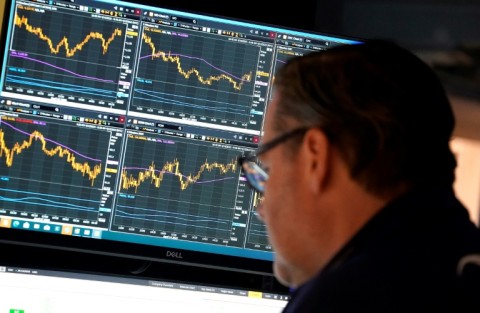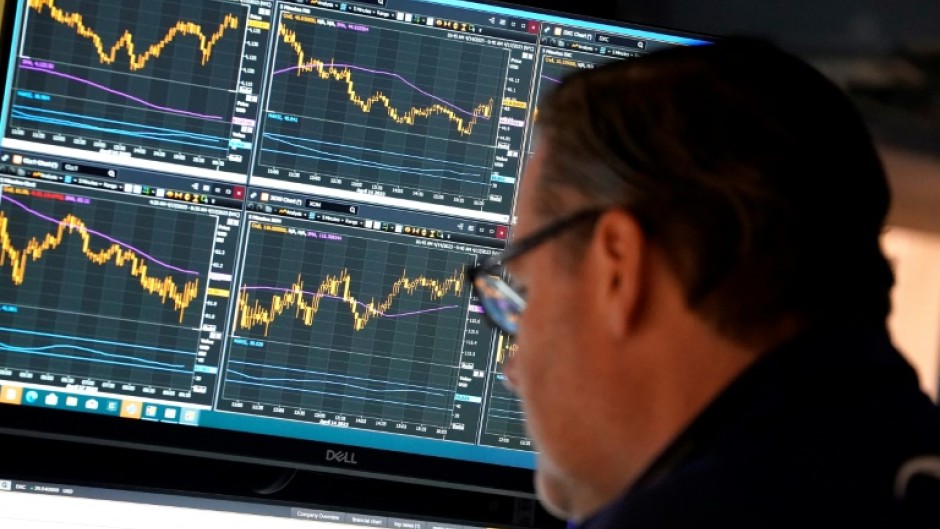
NEW YORK - Global equity markets declined on Friday as traders from Wall Street to Frankfurt eyed additional interest rate hikes by central banks to combat elevated inflation amid mounting concerns about global growth.
Oil prices fell on concerns high borrowing costs would weigh further on demand, while the dollar gained against major rivals on the prospect of more rate increases.
All three major US indexes ended the day in the red, with analysts noting a sense that the market is due for a pullback after an earlier run.
"Hawkish central banks talk" continues to weigh on markets, said Peter Cardillo of Spartan Capital.
There was mixed macroeconomic news this week, he said, but investors' focus remained on Federal Reserve chief Jerome Powell and the Bank of England, which further tightened monetary policy.
On the other side of the Atlantic, a keenly watched survey showed eurozone economic activity worsened in June to a five-month low, hit hard by a fall in industrial production.
The eurozone entered a technical recession at the start of the year.
Meanwhile, UK private-sector growth slowed to a three-month low in June as soaring interest rates and stubbornly high inflation fuelled by rising food prices worsens a cost-of-living crisis, data showed.
"The key theme in FX (foreign exchange) and across most financial markets this week has unambiguously been this: risk off," said City Index analyst Fawad Razaqzada.
"Weakness in data and very hawkish central banks have revived investor concerns over a hard landing," he added, referring to the fear that economies could face a severe downturn due to rising borrowing costs.
In Europe, the Bank of England lifted its key rate on Thursday by more than expected, while Switzerland and Norway also tightened.
These hikes followed rate increases last week in the eurozone, Australia and Canada.
Turkey also hiked rates this week, sharply reversing course on its unorthodox monetary policy by almost doubling borrowing costs after cutting them for two years.
"Global recession concerns are back in the main thanks to a hawkish central bank policy that may have to inflict some economic pain to rein in core inflation," said Stephen Innes at SPI Asset Management.
"In that environment, the current level of risk-free yields makes investing in equities less attractive relative to bonds," he added.
Amid the decline in stock prices in Asia, Europe and the United States on Friday, traders were also keeping an eye on Beijing after a hoped-for raft of stimulus measures for the Chinese economy failed to materialize.
While China's central bank has cut borrowing costs, there has been very little by way of policy detail from officials.

